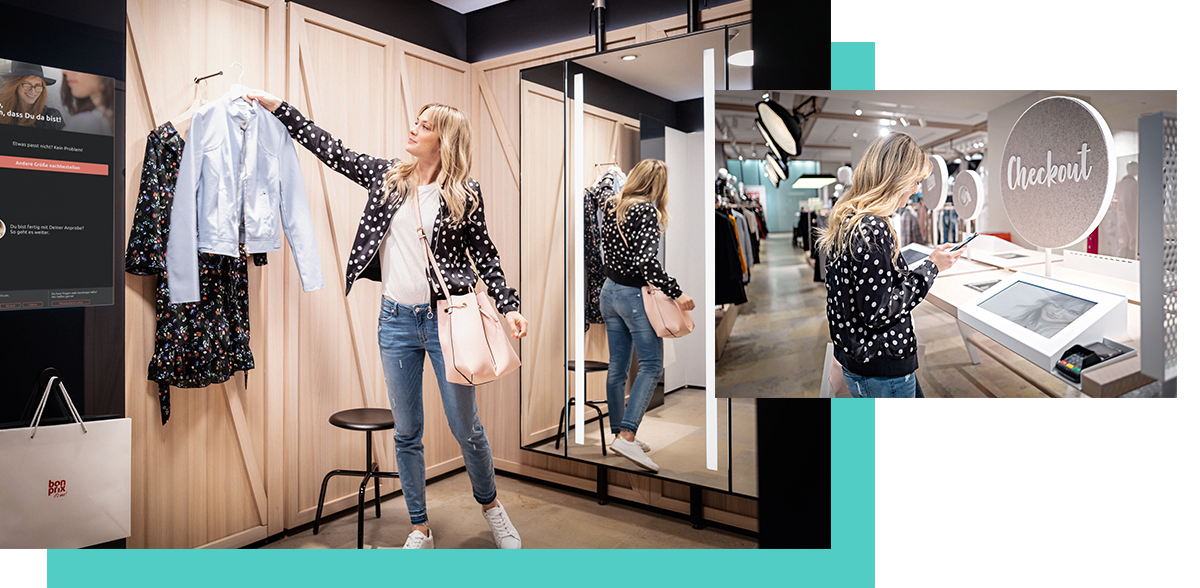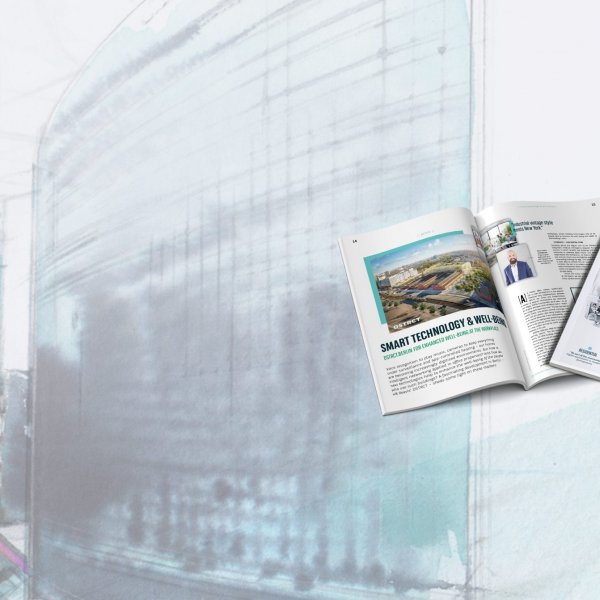RETAIL AND THE LOCKDOWN – FOCUSSED ON DIGITISATION?
Retailers faced plenty of challenges before the Corona crisis, and the situation has now become even more critical for certain segments of the retail market. Can digitisation provide a remedy here? We held a round table discussion with the retail experts from BNP Paribas Real Estate, Claudia Reischl, Olga Sieczewicz and Daniel Schuh, who report on the status quo and the future plans of textile and food retailers and restaurateurs.

REWE ONLINE – from the ordering app through shopping lists to tasty recipe suggestions and exclusive online products.
“In the light of all the present challenges, digitisation plays a crucial role in staying transparent and “close” to guests. We are also keen to provide our guests with the latest news at all times and to make it as easy as possible for them to find a restaurant in their area, book a table or opt for delivery or contact-free curbside pickup.”
Are there any other examples of best practice from the retail sector?
[Claudia Reischl: The past three or four years have witnessed a growing trend for shops to try out campaigns aimed at enticing customers back to their outlets by promising an unforgettable shopping experience. Coffee shops or similar are commonly installed to enhance the quality of the overall setting. The German retail market has yet to bring forth any major sensation in this area, though. The bonprix store in Hamburg is perhaps worthy of mention - it offers an app-based digital shopping experience in the store, covering the whole spectrum from finding items to paying via PayPal.]

LEARNING STORE – the shopping concept of the bonprix Fashion Connect store is subject to an ongoing optimisation process, with continual customer feedback providing important findings relating to the future face of retail.
Will restaurant proprietors also continue to focus on digital transformation?
[Olga Sieczewicz: The crisis has once again clearly shown those who have not dragged their feet on the digitisation front to be at a clear advantage. Every restaurant proprietor now appreciates the importance of digitisation. A great deal of effort is being put into the transformation process, and the topic is accorded high priority. The catering sector’s fast-growing delivery and take-out segment, where all the processes are already online and mobile, will further reinforce this trend. The scope of functions is being broadened and user-friendliness improved.]





